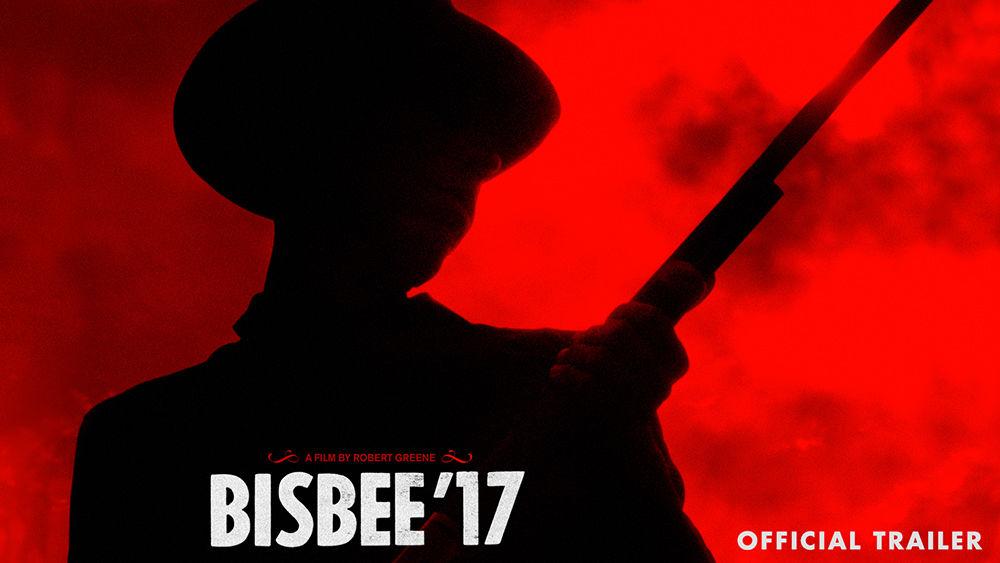You’ve probably never heard of the Bisbee Deportation of 1917. You probably don’t know about the 1200 striking workers of a tiny Arizona mining town who were rounded up at gunpoint, loaded on to cattle cars and deported 200 miles across the desert, never to return. You probably don’t know that no one was ever convicted for the unlawful displacement of over a thousand unionized individuals, and no one ever received reparations for their suffering.
Until just last year, their story was buried in the sand.
“Bisbee ’17” is a new movie about these events, filmed 100 years after their conclusion in the exact same town where it all went down. Director Robert Greene, an NC State alumnus, made it his mission of 15 years to uncover the story and bring it to light.
“This is my sixth feature,” Greene said, “so I’ve been developing these documentary strategies, to incorporate performance in these unique ways, to create ways of understanding stories in a new way. So, part of it was just building up to this moment.”
The Bisbee Deportation involved a power struggle between a labor union in Bisbee and the corporation that owned all the mines in the area. After the union organized a strike that lasted for over two weeks, the corporation launched a plan that involved deputizing over 2000 men, who went door to door arresting the striking workers.
Greene said he found out about the deportation shortly after graduating from NC State in 2000, when his mother-in-law bought a house in Bisbee for family get-togethers.
“I totally fell in love with the town, and this was 15 years ago,” Greene said, “but then also immediately heard about the deportation, and was shocked and saddened.… I totally loved the place, but also was sort of haunted by it, and mortified by what happened. So, it comes out of a place of love and disgust at the same time.”
“Bisbee ’17” is a documentary, not a dramatization. It follows the citizens of Bisbee in the modern day as they themselves – not professional actors – recreate the events of the deportation in order to come to terms with the actions of their predecessors 100 years prior.
“The town had buried this story for many, many years,” Greene said. “No one talked about it. The mine closed in 1975, but it still feels like a company town in some ways. But now, on the hundredth anniversary, the town itself was ready to reconcile with this.”
Devin Orgeron, a professor of film studies at NC State, has followed Greene’s works for several years, and says he’s looking forward to seeing the film.
“It has a rather challenging formal structure,” Orgeron said. “It’s bound to call into question a whole series of preconceived notions we might have about a documentary about labor.”
It’s true that the film will certainly be a marvel of unconventional storytelling. Greene describes his creation as a “performance art meets ghost story meets western musical freak-out.”
However, the story it has to tell is not only set in the past. Greene said the film is an important examination of our way of life in the modern day.
“The ’17’ in ‘Bisbee ’17’ is about now,” Greene said. “Politically, this is a movie about the present day as much as it is about the past…. In North Carolina, we’re dealing with our history, like the tearing down of the statue in Chapel Hill, things like that. We’re confronting the mythologies of the past in a very direct way, and I do think that this film sort of engages with that idea, and hopefully it will excite people and get people to think more deeply about our own history.”
Orgeron also sees many of the themes in “Bisbee ’17” as present in our time, especially as they deal with the interactions between corporations and labor unions.
“I feel like we’re at a point in our own contemporary history where we’re facing real questions about workers’ rights,” Orgeron said. “Not just financially but in all other manners as well; there’s a lot of attention being paid to the workplace and our place within the workplace.”
“Bisbee ’17” will be showing at Alamo Drafthouse Cinema in Raleigh on New Bern Ave. this Friday, Oct. 12 at 10 a.m., and will be free for students, faculty and staff with NC State IDs. There will be a Q&A session immediately after with Greene and a few local labor representatives. At 2 p.m. that same day, a special filmmaker’s colloquium will be held in Caldwell G111, where Greene will speak about the making of his film.
“We’re so excited that we’re finally able to bring him to campus,” Orgeron said. “It’s a big deal, for a campus like NC State that isn’t necessarily known for art or the humanities, to have somebody who has come through our program and done such great things to come back and visit. It makes us proud.”
Greene said that while the film was a challenge to make, its importance outshines the difficulties of its production.
“We’re making a film about 1200 striking miners who were forced into the desert,” Greene said. “So whatever challenges we were facing were nothing compared to the story that we’re telling.”













